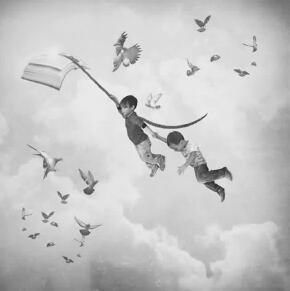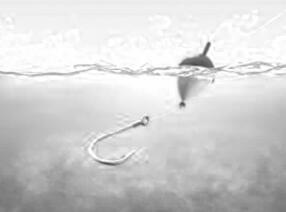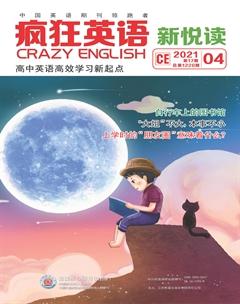自幼爱读书
李全忠



Early years reading
When I was a very young girl, I was totally unaware of my big headache. In the 5th grade, my teacher put the homework assignments up on the blackboard. Since I couldnt see any assignment message, I didnt do the work. I told her there was no assignment on the black? board. It turned out that, of course, I was wrong.
As time went by, more and more reading assignments and requirements surfaced. To read I had to place the book mere inches from my face, which gave me severe headaches. I began avoiding reading as often as possible. It wasnt easy but I was able to continue until I turned 13 without reading. By the time the problem was resolved, I was reading at a 4thgrade level and very slowly.
It was that year that my father purchased a book for me. You have to understand that for my father to buy me something was such a rare occurrence that I prized the book even though I didnt want to read it. It was The Call of the Wild by Jack London. I was hooked. I began devouring(如饑似渴地读) books after that. Yet I still read very slowly and had a terrible time catching up on all the reading required for high school.
When my children were young, I read to them. We had a special reading time each day. The moment we finished a book, I would begin another one. Even when the four of them were reading for themselves, I still continued the practice. When my son was in high school, he thought he was too old to be read to. So he began to read alone. However, he kept his door open so he could still hear the book and before the chapter was over, he had crept(悄悄移动) out and joined us in the back of the room. I found that there is something magical about the human voice and it draws my kids in. That was my method to get my children to fall in love with books.
Like fastened bonds, books not only closely connected our early years reading but also opened a more brilliant future before us.
1. What does the underlined phrase “my big headache” in Para. 1 probably mean?
A. My young age. B. My vision problem.
C. My teachers criticism. D. My homework assignment.
2. What changed my reading process when I was young?
A. My teachers instruction. B. An operation on my eyes.
C. Fathers expectation on me. D. Reading a book by Jack London.
3. How did the author get her children to read books?
A. By reading to them. B. By establishing a book club.
C. By giving more requirements. D. By sharing her own reading story.
4. In what order is the text organized?
A. Time. B. Places. C. People. D. Events.
On the surface of the water floats a hook, which is a prize I won in the fishing competition.
1. surface n. 表面;表层;外表
2. hook n. 鱼钩
3. prize n. 奖品
在此句中,它们虽“容颜”未改,却“性”“情”大变!回到文中瞧一瞧,一切变化可知晓。学以致用,等你来挑战!
Match the underlined words in the following sentences with their proper meaning.
1. Joe dived deep into the water and then surfaced after a while.
2. Toole, who had disappeared for nearly a decade, surfaced again in the town last week.
3. Jason always sleeps in at weekends. He never surfaces before midday on Sundays.
4. All the ads are designed to hook the potential consumers.
5. The companys shoes are highly prized by fashion?conscious youngsters.
A. To rise to the surface of water
B. To get out of bed, especially late
C. To become known about or easy to notice
D. To succeed in making someone interested in something
E. To think that someone or something is very important or valuable
F. To suddenly appear somewhere, especially after being gone or hidden for a long time
Jack London
杰克·倫敦(Jack London,1876年1月12日—1916年11月22日),原名约翰·格利菲斯·伦敦(John Griffith London),美国现实主义作家。他一共写过19部长篇小说、150多篇短篇小说和故事、3部剧本等,主要作品有小说集《狼的儿子》,中篇小说《野性的呼唤》《热爱生命》《白牙》,长篇小说《海狼》《铁蹄》《马丁·伊登》等。
读书,是一种挑战、一种情结、一种传承。读书,将“我”和孩子们紧紧联系在一起,让我们走向更光明的未来。

